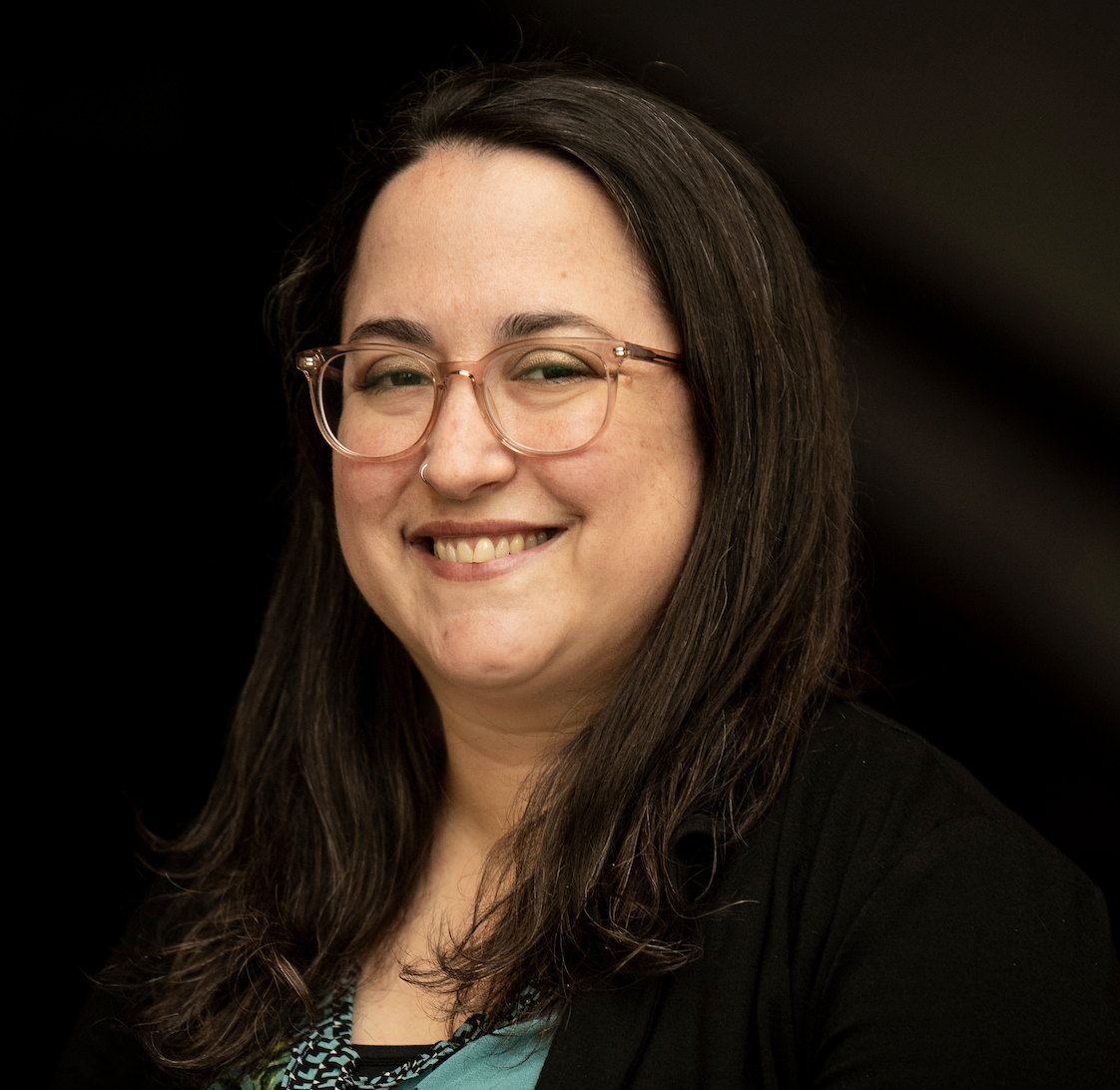The symmetry was perfect. Two dear friends, rabbis who graduated from Hebrew Union College, with the same initials, started a podcast. Rabbis Jodie Gordon and Jen Gubitz are the creative and spiritual forces behind the new podcast “OMfG: Jewish Wisdom for Unprecedented Times.” Gordon is a rabbi at Hevreh of the Southern Berkshires and Gubitz has been a rabbi in the Boston area for the past decade, mostly recently directing the Riverway Project.
They recently talked to JewishBoston about how their podcast has marked both pandemic and Jewish time. “I’m fascinated by the concept that the pandemic has handed us a holy sabbatical to step back and observe our lives,” said Gubitz.
As for the seemingly irreverent name of the podcast, both women said the “f” in the title is wonderfully open-ended—it’s there to start genuine conversations. As both rabbis noted, the podcast’s first episode was recorded just days before the 2020 election in what they agreed was “an incredibly fraught time.” However, they merged those tensions with a sense of Jewish optimism and a meaningful nod to spirituality. And as the following interview indicates, both women muse on the meaning of that striking “f” in “OMfG.”
Aside from the obvious, what else does “f” stand for in “OMfG”?

Jen Gubitz: “OMG” is obviously a way of saying, “Oh my god.” We love the irreverence of the lowercase “f.” We get as close to that as we can. We’re also responding to the cycles of the Jewish calendar and the world as rabbis like to do.
Jodie Gordon: The title and the seed of the idea were all Jen’s. She texted me late last summer and told me she had an idea she wanted to run by me. The thing to know about Jen and me is if she says, “I have an idea,” I’ll say, “Yes.” We’re all saying “OMfG” to this year. The podcast has been a personally nourishing project—it’s as close as I get to a hobby these days—and a different venue to exercise thought leadership. It’s been a great gift during this year.
Gubitz: The “f” is also lowercase as we give a nod to what it could stand for without saying it. At the end of a lot of episodes, we ask a child, “What’s your favorite ‘f word’?” And so “f” stands for friendship, it stands for food, it stands for French fries, family. And it definitely stands for feminism, although no little kid has said that yet. My niece said, “You mean the word Daddy said I can’t say?”

Gordon: Lately, I’ve been thinking a lot about the notion that every good Jewish idea has something after the colon. So, it’s “OMfG: Jewish Wisdom for Unprecedented Times.” I do think about what will happen when the times are no longer unprecedented, which is half a joke. I don’t think that’s where this world is going. We’re not going back, but it is an interesting experience to watch hope creep back into our lives; to see where the seeds of optimism may be sown. We recorded the first episode the week before the election, and there was still no school for my kids. We had no childcare that week. I was hiding up in my bedroom, sitting at this junky desk that is about to fall apart any minute. Everything about that moment was “OMfG.” People think about their rabbis sitting in a study and wearing real clothes, and I was literally wearing sweatpants and hiding from my children.
Gubitz: Right after that first episode was Hanukkah, a rededication, and then Tu BiShvat, planting seeds. We had Passover, which is about redemption. The cycle of the Jewish year meets us so beautifully as hope grows.
What does the “G” stand for?
Gubitz: At times, “G” stands for God. Other times it stands for gratitude. It also stands for Gubitz and Gordon. But we are in no way comparing ourselves to God! I’ve been working with young adults for five years, and I gave a “God sermon” on the High Holy Days this year—something I had always avoided but people loved it. I’m agnostic about God. I hope there is one, but it is not clear to me. I’m not an atheist, but I’m also not a tried-and-true believer. The “G” stands for something greater than us. People need that right now.
Gordon: I have a somewhat different take on it than Jen. I feel like a very tried-and-true believer. And part of the “OMf” part is asking how much more can we be tried? The calling out to God piece feels very real to me. No one has to believe in my version of God, but I feel like we’re trained in rabbinical school to ask teenagers, “Tell me about the God you don’t believe in.” This past year, where so many people have experienced solitude like they’ve never experienced before and have had more time alone with their thoughts than they probably have ever had before, people are wrestling more with the idea of God. Whether it’s wrestling their way into full atheism or wrestling into a deeper sense of belief, God as a concept is something people are talking about.
Your tagline is “Where the Stories of Our Lives Meet the Wisdom of Jewish Tradition…With a Dose of Laughter.” Tell us about that.
Gubitz: There are different ways to approach text. One approach is to read the text and see what it means to you. This is text meets life. There’s also life meets text, which is when we read our stories into the stories of the Jewish people. For example, there is the story of Isaac. He’s traumatized, but his is also a story of resilience. You have to read into Isaac’s life based on your own experience of being tested. We try to look for the “OMfG” in the world and ask, “Where is that in text? Where is that in Jewish tradition?” When we observe that everyone’s isolated right now, where is isolation in Jewish texts and in Jewish thought? We’re searching for meaning in the text and in the stories of Judaism to give some context for this moment in our lives. That’s flipping the playbook.
Gordon: There’s also something feminist about the tagline of where the stories of our lives meet the stories of Jewish tradition. Jen and I are fully second if not third-generation rabbis who are women. We are squarely post-second-wave feminism in our rabbinate. When we hear the rabbinic voices that tend to be amplified the loudest in the public square, they are often men. The self-consciousness I think a lot of women who are rabbis hold is how to balance being personal enough to be relatable and not over-sharing or appearing self-indulgent. I was also thinking about the stories of our lives. This year, Jen got married. What happens to a person who had plans for a wedding that got changed by a global pandemic? How does it change your spirituality? How does that affect your faith? In one episode early on, I talked about a miscarriage that I had, and it wasn’t an episode about miscarriage. It was something that related to what we were talking about in the moment. That’s the kind of modeling that we didn’t grow up with.
Gubitz: We also don’t have enough women’s voices. We had to commit to changing this situation. For the first 20 centuries of the world, only men were quoted in Jewish texts. We’re adding our voices and also representing the voices that are still not heard enough in the Jewish world. And as for the dose of humor, we laugh a lot together because laughter gets us all through each day.



